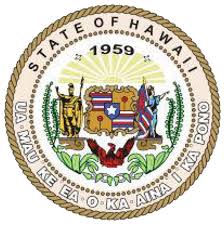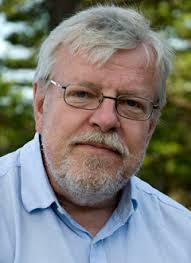US Department of the Interior warns: communication towers threaten birds


 In a letter about a new nation wide wi-fi deployment (called *FirstNet), the US Department of the Interior states the wireless proposal threatens birds, and is not consistent with current information and laws that protect birds. They called for an environmental review.
In a letter about a new nation wide wi-fi deployment (called *FirstNet), the US Department of the Interior states the wireless proposal threatens birds, and is not consistent with current information and laws that protect birds. They called for an environmental review.
 Two hundred forty one bird species are at mortality risk from both tower collisions and from exposure to the radiation towers emit. This includes birds that are endangered or threatened, Birds of Conservation Concern, migratory birds, and eagles. They estimate up to 6.8 million bird deaths a year may result from collisions with towers.
Two hundred forty one bird species are at mortality risk from both tower collisions and from exposure to the radiation towers emit. This includes birds that are endangered or threatened, Birds of Conservation Concern, migratory birds, and eagles. They estimate up to 6.8 million bird deaths a year may result from collisions with towers.

 Studies of radiation impacts on wild birds documented nest abandonment, plumage deterioration and death. Birds studied included House Sparrows, White Storks, Collared Doves, and other species. Studies in laboratories of chick embryos documented heart attacks and death.
Studies of radiation impacts on wild birds documented nest abandonment, plumage deterioration and death. Birds studied included House Sparrows, White Storks, Collared Doves, and other species. Studies in laboratories of chick embryos documented heart attacks and death.
 In their letter, The Dept of the Interior criticizes the FCC’s radiation safety guidelines stating,“the electromagnetic radiation standards used by the Federal Communications Commission (FCC) continue to be based on thermal heating, a criterion now nearly 30 years out of date and inapplicable today.”
In their letter, The Dept of the Interior criticizes the FCC’s radiation safety guidelines stating,“the electromagnetic radiation standards used by the Federal Communications Commission (FCC) continue to be based on thermal heating, a criterion now nearly 30 years out of date and inapplicable today.”
For more information see Dept of Interior letter and background: http://www.ntia.doc.gov/files/ntia/us_doi_comments.pdf
*In 2010 President Obama called for a new nationwide wireless network. FirstNet is that broadband initiative. See background proposal and More info on FirstNet.
“The world is going wireless and we must not fall behind. ” President Barack Obama
See this website for a compilation of studies on effects on wildlife http://www.emfresearch.com/emf-wildlife/
Hawaii Bill calls for immediate smart meter moratorium
 Wouldn’t it be fantastic if Hawaii could stop the smart meter deployment?
Wouldn’t it be fantastic if Hawaii could stop the smart meter deployment?
Hawaii state Representative Kaniela Ing has introduced a bill HR 146 “Expressing support for an immediate moratorium on the installation and promotion of smart meters until they are proven safe to public health and the environment, economy, and security of the state.”
Please support this effort by signing the Petition to Stop the “Smart Grid” in Hawaii until the safety of the technology involved can be proven: http://petitions.moveon.org/sign/stop-smart-grid-electro?source=c.fwd&r_by=3159788
And submit testimony in support of this bill here: http://www.capitol.hawaii.gov/measure_indiv.aspx?billtype=HR&billnumber=146&year=2014
Kim Goldberg’s book project: REFUGIUM

In Nanaimo, British Colombia, Canada, award-winning journalist and author Kim Goldberg is writing a book about people living with electrosensitivity, and about the consequences of a society that is poisoning itself with wireless technology.
Although Kim is not electrosensitive herself, she has lived her entire life without ever owning any wireless devices or having them anywhere on her property. She embarked on this book project as a result of her own involvement in fighting smart meters in BC.
“Through the fight against smart meters here in British Columbia, I became increasingly aware of how many people are disastrously affected by wireless radiation in general and by smart meters in particular,” Kim says. “I was hearing stories of a person confined to a wheelchair after 24 smart meters were installed on her wall in an apartment building, or the school teacher who now has to sleep in her car in the driveway each night because she can no longer sleep in her bedroom, or the musician who became so sick after smart meter installation that she had BC Hydro disconnect all the power to her home.”
Kim says she wants to “put a human face on electrosensitivity” with her book project. “In many ways we are drowning in data about the very real health risks and consequences of our increasing exposure to wireless radiation,” she says. “There really is no shortage of evidence. I think what’s needed now is to humanize the problem. And that’s what I hope to do with my book—show the public how lives are devastated by daily exposure to this radiation coming from cell phones, wi-fi, cordless phones, smart meters, etc., and how we are all at risk. I also want to show the world the ingenious and courageous strategies electro-sick people are using to find or create safe havens for themselves and their families—for this is a future we may all be facing, and sooner rather than later.”
You can visit her growing list of Sanctuaries here: http://electroplague.com/sanctuaries/ Kim says she is always looking for more electro-safe sanctuaries to add to her list—official sanctuaries as well as unofficial places around the world that happen to have low signal.
Kim’s book Refugium: Wi-Fi Exiles and the Coming Electroplague will be published in 2015. For updates on her progress, you can sign up to follow her Refugium blog, and you will be notified by email of new postings: http://electroplague.com/blog/
Manager comes unglued at protest of electricity disconnect
Request for fair treatment ignored
A small rural electric utility in Northern California, Plumas Sierra Rural Electric Cooperative (PSREC), has disconnected power to Stop Smart Meters Director Josh Hart and his partner Heidi for refusing to pay fees to keep an analog meter. Within this cooperative other customers are allowed to self read their analog meters, at no additional cost. Because Josh and Heidi refused a smart meter, they are forced to pay more, $300 a year more. They were not given the option to self read their meter.
Josh and Heidi moved to Plumas County to live in a safer environment. They live in an all electric house, and they have been without electricity since February 19, when PSREC cut the power to their home. In the following video Heidi tells the “cooperative” why she believes the disconnect is unfair and illegal, and how she feels scared, bullied and shocked about how they are being treated.
PSREC general manager Bob Marshall comes unglued as he responds to Heidi’s comments and having the public meeting filmed. He demands Josh stop filming and threatens to call the sheriff. Marshall then responds to Heidi’s request for fair treatment saying,“We disagree strongly with everything you said”. Then he turned the blame on her saying, “we disagree with your bullying…”
You can read more at http://stopsmartmeters.org/2014/02/26/psrec-general-manager-loses-it-after-illegal-disconnect/
Sedona residents speak out against smart meters
Major U.S. Utility Says “No Rational Basis” for Mandating Smart Meters
 From SkyVision Solutions:
From SkyVision Solutions:
Northeast Utilities (NU) operates New England’s largest utility system serving more than 3.6 million electric and natural gas customers in Connecticut, Massachusetts, and New Hampshire.
In a written submittal filed with the Massachusetts Department of Public Utilities, Northeast Utilities was highly critical of a proposed state plan that would require utilization of “advanced metering” or smart meters within the state of Massachusetts as part of an electrical grid modernization plan. In fact, the comments are quite remarkable in that they appear to reflect reality without undue political spin or bias. Let us hope that other utilities, public utility commissions, and politicians everywhere can soon come to similar unbiased conclusions that are based upon economic realities and reflect consumers’ and societal best interests.
Will it soon be too late? Cancer expected to increase by 70% in the next 20 years according to WHO
 Commentary by Dr. Olle Johansson, translated from Swedish:
Commentary by Dr. Olle Johansson, translated from Swedish:
DEBATE. The World Health Organization [WHO] has released a bleak future forecast. The number of new cancer cases is expected to increase from 14 million to 25 million per year over the next 20 years – an increase of 70 percent.
“Despite encouraging progress, the report shows that we can not treat ourselves out of the cancer problem,” said Christopher Wild, co- author of the report. But one question lingers for me: Why does WHO themselves not consider another possible cause of this avalanche, a cause that they themselves have warned about and predicted? Let me explain.
Today, various wireless devices flood our homes, schools and other workplaces. The issues around all of these sources of radiation are numerous. Adults are not at all certain that all this radiation is harmless, they are not at all sure that wireless technology is without risk. To this one can add numerous studies and investigations, expert reports and commentaries arise which in summary say that “there is a strong suspicion of damage.”
These texts also emphasize the need for the use of the Precautionary Principle and this even stronger after the WHO has classified radiofrequency electromagnetic fields – from mobile phones, tablets , etc. – as possibly carcinogenic (Class 2B). Thus, the idea that these techniques would be safe, we can immediately cross out – not even the WHO believes it – and they still have a category into which such proven safe exposures would fall (Class 4 – proven non-human carcinogen).
The question now is instead what we accept the risk to cost in terms of health care, disability and premature death.
It should be noted that this is an addition to the earlier (2001) WHO 2B cancer classification of power-frequency electromagnetic fields (thus including common household current ) – which are also emitted at high levels from handheld gadgets such as tablet devices (iPad etc.) and mobile phones – as a risk factor specifically for childhood leukemia. Given that in 2001 the WHO was already very close, voting 9 to 11, to move it to 2A (thus the higher cancer class ) and considering all the new knowledge that has accumulated since 2001, I maintain that today one should definitely classify the relationship between childhood leukemia and power-frequency electromagnetic fields in the much more serious 2A (“probably carcinogenic”) category.
Why not debate this?
There was a time when people did not understand that radioactivity from radium, uranium and plutonium, medical x-rays and ultraviolet light actually hurts us and can even kill us. You could see shoe-fitting x-ray machines in childrens’ shoe shops in Sweden as late as the end of the 1940s and elderly people will remember the glowing radioactive wristwatches that were popular in the 1950s. About the same time we began to understand that even the sun’s beautiful and warm rays can damage our cells and their genetic material with the development of skin cancer as a result. Today we warn everyone, even for the weakest of ultraviolet light, which we call UVA, especially if you’re a child with fair skin and light hair.
Against this background one might wonder: Can our cells and molecules that are now suddenly exposed to an environmental exposure from power-frequent magnetic fields, microwaves, radio and TV signals, etc. which have never before existed, or if it has, with an immediate increase of one million million million times stand it at all? The radiation goes right through us, and our – and other organisms’ – cells and molecules have no protection at all against it.
I’m afraid, very afraid, that we will soon have to write a new report titled “Too Late Lessons from Early Warnings” …
Olle Johansson is Associate Professor and Assistant Professor in Neuroscience at the Karolinska Institute, Stockholm. From the original in Swedish published 12 Feb. 2014 by Newsvoice.
